
New Eastern Europe (07.09.2018)
Tomasz Kamusella
The Zhivkov personality cult reaches its annual crescendo during the lavish celebrations of the late dictator’s successive anniversaries of birth on the 7th of September in his hometown of Pravets, near Sofia. EU and Bulgarian flags will again provide the background for a leader synonymous with Bulgarian communism, including its darker chapters.
In the first half of 2018 Bulgaria, for the first time in history, held the presidency of the Council of the European Union. Once the task was successfully completed, the presidency was passed to Austria under its new Freedom Party (FPÖ) populist government. Bulgaria may now turn its attention to what from the national perspective seems a more important event, though it is utterly unknown outside this country. Namely, the celebration of another Anniversary of the Birth of Comrade Todor Zhivkov, the General Secretary of the Central Committee of the Bulgarian Communist Party who ruled the country between 1954 and 1989. Although he died twenty years ago in 1998, the communist dictator’s shadow palpably lives on in Bulgaria. Zhivkov is ‘more alive’ in his death than Bulgaria’s first communist leader Georgi Dimitrov (1882-1949) ever was, though it was the latter who was solemnly interned in a mausoleum (complete with his embalmed body), modeled on the Lenin Mausoleum in Moscow. The Dimitrov Mausoleum was razed in 1999, symbolising the end of communist totalitarianism in Bulgaria.
Many disagreed with the removal of this important place of memory from Bulgaria’s official history. The fact that the mausoleum withstood the initial three attempts to demolish it with the use of an explosive was seen as a sign by many that abandoning the communist past wholesale might not be such a good idea. This opinion persists among numerous Bulgarians, despite the fact that their country joined NATO in 2004 and three years later, in 2007, became a member state of the European Union. Not only did the proverbial average person in the street share the widespread rose-tinted view of communism, but numerous Bulgarian politicians and intellectuals, too, especially those of populist leanings. All of them are invariably of an ethnically Bulgarian background, that is, Slavic-speaking and Orthodox. The incumbent serial (already serving for a third time in office) Bulgarian Prime Minister, Boiko Borisov, began his postcommunist political career as the personal body guard of deposed Todor Zhivkov, when the latter found himself under house arrest following the end of the communist system of governance in Bulgaria at the turn of 1990.
Zhivkov’s house arrest was not strictly enforced. When the pro-market reforms of the Bulgarian economy took their toll in the form of previously unknown unemployment and rapidly growing social inequalities, Zhvikov became a sought-for speaker and visitor. After losing power, he became a potent symbol of the ‘good old times of communism.’ In the eyes of his admirers, Bulgarian communism is synonymous with Zhivkov’s 35 years in power. Until his death, Zhivkov roamed across the length and breadth of Bulgaria on visits that were ‘unofficial’ only in name. Journalists and reporters followed his every step and wrote down each of his sagely pronouncements. The ‘private citizen’ was welcomed by crowds with bread and salt in the official ‘old Slavic’ fashion, as practiced across the erstwhile Soviet bloc. The unexpected Zhivkov personality cult flourished. During these visits Zhivkov was always attended to, helped with a task, or gently guided by Borisov, as seen in ample press photos. While the thirty-nine volumes of Zhivkov’s Collected Works (more than one volume for each year of his rule!), ghost written for the General Secretary when he was in power, kept gathering dust on library shelves, the former communist dictator’s over 700-page long Memoirs, published in 1997, was (and still is) an instant bestseller in Bulgaria.
Disputed legacy
Zhivkov, in his heyday a non-descript apparatchik slavishly kowtowing to the Kremlin’s masters (even to the point of applying for Bulgaria’s membership in the Soviet Union twice, in 1962 and 1973), could at long last bask in hard-earned fame, genuinely adored by ‘his own’ nation. Those who ‘unjustly and unjustifiably’ deposed, arrested and put him on trial were finally proved wrong by his postcommunist popularity. Zhivkov stood vindicated, concluding his memoirs on this upbeat note: ‘I, Todor Zhivkov, used all the power I had for the well-being of my people’. The mixture of Zhivkov’s megalomania and sheer odiousness in the context of the Bulgarian judiciary system’s studious endeavors to let him scot-free inspired the famous British writer Julian Barnes to devote an urgent novel to Zhivkov’s trial (The Porcupine, 1992). When Zhivkov died in 1998 he was denied a state funeral. However, the teeming mass of tens of thousands of ‘private citizens’ in the cortège, walking solemnly through Sofia’s main arteries to bid a final farewell to the ‘great Bulgarian leader and hero,’ closely emulated the funeral ceremonies of communist leaders held in other Soviet bloc countries.
The celebratory ‘unofficially official’ funeral of Zhivkov took place nine years after the official end of communism in Europe. A decade earlier, a half-hearted attempt at starting a personality cult for Zhivkov in late communist Bulgaria had been a resounding flop. In 1987 a bronze statue of Zhivkov (sculpted by Professor of Arts and MP Sekul Krumov) had been unveiled in Pravets, the dictator’s home town (which also gave its name to Bulgaria’s eponymous computer; in the Soviet bloc, the country was tasked with the development of IT technologies). But in the following year, due to the growing popular discontent with the communist rule, this monument had been summarily removed and mothballed in a warehouse. It was faithful Borisov who came to the rescue, deftly riding on the rising wave of pro-Zhivkov sentiment in postcommunist Bulgaria. First, Borisov established the country’s largest security company Ippon. Meanwhile, after Zhivkov’s death, between 1998 and 2001, Borisov stayed in touch with the country’s highest echelons of power by becoming the main bodyguard of the former Bulgarian Tsar (King), Simeon Sakskoburggotski (Saxe-Coburg-Gotha, or the official name of Britain’s royal house, before it was changed to the more ‘English’ name of Windsor in 1917), who decided to enter Bulgarian politics. Subsequently, Tsar Simeon served as the country’s Prime Minister from 2001-2005, when he safely steered Bulgaria into NATO and the European Union (EU). During this time, Borisov’s company supplied a security detail for the Prime Minister.
On 7 September 2001, on the occasion of the 90th anniversary of Zhivkov’s birth, the aforementioned bronze statue of the communist dictator was returned from storage to its ‘rightful place’ in Pravets. This town had already become the center of Zhivkov’s personality cult. The re-erection of this monument, though hardly noticed outside the country, marked the beginning of the rise of Borisov as a leading politician in postcommunist Bulgaria. The Tsar had to stay away from the celebrations because it was the communists who had had deposed him from the Bulgarian throne in 1946. Such qualms, of course were not shared by Georgi Parvanov, who was named a presidential candidate by the Bulgarian Socialist Party (BSP, which had replaced the offending adjective ‘Communist’ with the term ‘Socialist’ in 1990). At the unveiling of the re-erected statue of Zhivkov, Parvanov shrewdly commenced his election campaign. He successfully became Bulgaria’s President for two terms (2002-2012), as allowed by the Constitution. Parvanov was always at the ready to help Borisov with the latter’s budding political career. From 2001-2005 Borisov served as Chief Secretary of the Ministry of Interior, and subsequently as Mayor of Sofia (2005–2009), before becoming Prime Minister for the first time in 2009.
Condemnation and Commemoration
Tellingly, the tradition of such officially ‘unofficial’ celebrations of the successive anniversaries of Zhivkov’s birth commenced under Borisov’s watch as Prime Minister, though officially on the initiative of the BSP and the Pravets municipal authorities led by the BSP mayor, self-acknowledged Zhivkovite, and confirmed agent of the Communist security forces (DS), Rumen Guninski. The first anniversary to be celebrated in this manner took place in Pravets in 2010. Zhivkov would have been 99 in this year. It was a modest affair, hardly reported by the mass media. The following year, on the centenary of the late dictator’s birth, the Bulgarian flag was unfurled next to his statue. When Bulgaria had been a proud member state of the European Union already for half a decade, in 2012, on the occasion of the 101st anniversary the Zhivkov monument was surrounded by both the EU and Bulgarian flags. (Probably they were intended to fend off the stigma of the anti-Zhivkovian Declaration Condemning the Attempted Forced Assimilation of Bulgarian Muslims passed by the Parliament earlier this year.) These flags were then pronouncedly absent from the celebrations of the 102nd anniversary in 2013, when Borisov lost the post of Prime Minister for a year. But the EU and Bulgarian flags returned in 2014 for the 103rd anniversary. Borisov became Prime Minister again and assumed office on 7 September. Zhivkov’s birth date brought him political good luck.
Since then the EU and Bulgarian flags have remained a permanent fixture of the décor during the successive celebrations of Zhivkov’s birth to this day. As if, apart from being a good national communist, Zhivkov had been one of the founding fathers of European integration and had not sought for Bulgaria membership in the Soviet Union. Perhaps more fitting would be the flag of Vladimir Putin’s Eurasian Union (EAU, founded in 2014) than that of the EU? I am sure that if Zhivkov had stayed in power and conserved the communist system in Bulgaria, like Lukashenka does in today’s Belarus, he would have made sure Bulgaria had joined the EAU, not the EU. It is also likely that his country’s membership in NATO would have been an utmost outrage to Zhivkov.
In interviews and speeches Borisov refers approvingly to Zhivkov as ‘our Great Daddy of the Bulgarian nation.’ Apparently, he sees no irony in this appellation, which on the basis of overarching Bulgarian nationalism, obfuscates any differences between communist totalitarianism and democracy, Soviet domination and European integration. Zhivkov lost power mainly due to his mismanagement of the Bulgarian economy in the rapidly changing situation during the pro-market reforms in the age of Gorbachev’s perestroika. On the other hand, Zhivkov’s growing popularity after the end of communism is directly connected to the persecution of the country’s non- or insufficiently ‘Bulgarian’ Turks and Roma who profess Islam. Zhivkov closed down the Turkish-medium minority education system in the late 1960s. In the early 1970s most Roma and Pomaks (Slavophone Muslims) were compelled to change their ‘Islamo-Arabic’ names and surnames to ‘Slavo-Bulgarian’ ones. The process was completed in the brutal militarized name-changing campaign directed at the country’s 1 million Turks in the winter of 1984-1985. This assimilation campaign was extended to the targeted population’s deceased ancestors, including gravestones, apart from the official documentation held in the registries of births, marriages and deaths. Most remaining mosques were closed down too. Speaking the ‘foreign’ (that is, ‘un-Bulgarian’) languages of Turkish and Romani in public was banned, alongside ‘Muslim’ clothing, and the celebrations of Muslim holidays and events (including circumcision). This wholesale forced name-changing and ban on Muslim culture left tens of casualties in its wake, and necessitated the re-opening of the stalinist concentration camp on the Belene Island in the Danube. But the Zhivkov government, on the basis of the last communist census of 1985, could declare that no ethnic, national, linguistic or religious minorities remained in Bulgaria. The country had become a ‘truly pure’ nation-state.
This pronouncement was contradicted by communist Bulgaria’s sole mass grassroots opposition movement, almost exclusively composed of Turks and Muslims. In April 1989 they staged unprecedented in communist Bulgaria mass demonstrations and numerous hunger strikes that involved 60,000 people. Zhivkov replied swiftly by expelling a thousand of the presumed leaders to neutral Austria and Yugoslavia in May 1989. Then he decided to halve the share of Turks in the Bulgarian population from 10 to 5 percent. Officially, no Turks existed in Bulgaria at that time, so in the documents and the press they were referred to as ‘Bulgarian Mohammedans.’ Between 29 May and 22 August 1989, about 360,000 Turks and Muslims were expelled from Bulgaria to Turkey. It was postwar Europe’s largest act of ethnic cleansing before the outbreak of the wars of Yugoslav succession in 1991. (Unlike these wars, the ethnic cleansing remains utterly forgotten outside Bulgaria; and the first-ever monograph dedicated exclusively to this subject in any language was published in 2018.) Expellees started to return in August and after Zhivkov was removed by his communist colleagues on 10 November 1989, the pace intensified ; eventually about half came back. To add insult to national injury, the post-Zhivkov communist cabinet also gave back civil and political rights to the country’s Turks and Muslims. This enraged Bulgarians nationalists most, who in the hundreds of thousands demonstrated against this decision in January 1990. It seemed than an ethnic civil war was around the corner, or even a military conflict involving Turkey.
Neither Zhivkov, nor any of his government’s member ever paid for the crime of ethnic cleansing. The International Criminal Tribunal for the former Yugoslavia was founded in 1993 when the Yugoslav wars were still in full swing. No such international court was even considered for trying Zhivkov and other Bulgarian ethnic cleansers of 1989. Both the international community and Bulgaria let a curtain of silence descend upon the unseemly sight of the 1989 ethnic cleansing. However, despite all the odds and the Bulgarian communists-turned-nationalists’ strenuous opposition, on 11 January 2012, a small group of principled pro-democratic MPs managed to convince the Parliament to pass the momentous ‘Declaration Condemning the Attempted Forced Assimilation of Bulgarian Muslims.’ Significantly, the deputies unequivocally recognized that the ‘expulsion of more than 360,000 Bulgarian citizens of Turkish origin in 1989 [was] an act of ethnic cleansing committed by the totalitarian regime.’ Borisov’s GERB ruling party voted for this declaration. But no indictments followed, let alone pecuniary indemnification for the victims and their relatives. Tellingly, this document remains unknown to international scholarship and there is no official English translation of this Declaration.
Europe should take notice
It is again 7 September. This year, in 2018, the 107th anniversary of Zhivkov’s birth falls on this date. The date is a doubly symbolic occasion because it coincides with the 20th anniversary of ‘Great Daddy’s’ death. The EU and Bulgarian flags are again proudly unfurled around the Zhivkov statue in Pravets. National and local politicians attend the solemn gathering, together with Zhivkov’s family and stalwart admirers. No Turks, Roma or Muslims are invited. They are not welcome. No one cares about their feelings, or asks about their opinion either. There is not a single minority school in Bulgaria with Turkish as its medium of instruction. Roma houses are regularly razed in a discriminatory employment of the law, which is never applied in this manner to ethnic Bulgarians. Speaking Turkish or Romani in public is frowned at. On the one hand, Prime Minister Borisov regularly condemns the crimes of communism, including the 1989 ethnic cleansing. On the other hand, he knows that the silent majority of the country’s voters are ethnic Bulgarians, who remain besotted by the Zhivkovian vision of an ethnically ‘pure’ Bulgaria. Borisov seems to as much extend his unacknowledged approval of the celebrations in Pravets, as he is reluctant to speak about his time as a lieutenant in Communist Bulgaria’s Ministry of Interior from 1982-1990. The incumbent Bulgarian Prime Minister, one way or another, must have been involved in both the 1984-1985 forced name-changing campaign and the 1989 ethnic cleansing. Borisov obliquely confirmed his participation in the latter, but no specific details, let alone evidence, of his role has been released so far.
To my knowledge, Borisov is the sole leader of an EU member state who openly, unreflectively and unabashedly praises an ethnic cleanser. And for that matter, he permits and encourages the totalitarian dictator’s cult of personality, which incongruously flourishes under the EU flag. Is it an outrage, or just a sign of a new political path that the European Union blindly chooses to walk on? Why does Brussel not protest? Or, perhaps soon a Serbian leader will be permitted to officially praise Slobodan Milošević the genocidaire, an Italian leader – Mussolini, and an Austrian leader – Hitler. Would they be allowed that? Does Europe want this, which eerily looks like a repeat of the authoritarian 1930s? Didn’t this blighted decade of the dark 20th century lead straight to the Nazi totalitarianism, which soon engulfed Europe during World War II, afterward leaving half of the demolished continent under the Soviet totalitarian domination between 1945 and 1989?
This time the first step toward a similar totalitarian abyss may be this seemingly innocuous Zhivkov personality cult. A cult of the unrepentant ethnic cleanser and totalitarian dictator. A personality cult that is burgeoning today under the EU flags, when no one in Europe wants to take notice. Soon it may be too late.
I thank Catherine Gibson and Roumen Avramov for their helpful comments and advice. Obviously, it is me alone who is responsible for any remaining infelicities.
7 September 2018
Tomasz Kamusella is Reader in Modern Central and Eastern European History at the University of St Andrews in Scotland. His latest monograph Ethnic Cleansing During the Cold War: The Forgotten 1989 Expulsion of Turks from Communist Bulgaria was just published by Routledge.
http://neweasterneurope.eu/2018/09/07/bulgaria-unlikely-personality-cult/
© 2009-2025 Avrasya İncelemeleri Merkezi (AVİM) Tüm Hakları Saklıdır
Henüz Yorum Yapılmamış.
-
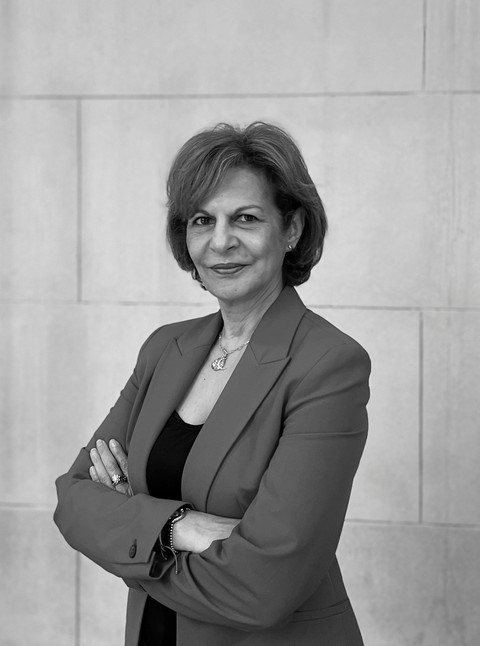 THE DANGEROUS DECLINE IN THE EU'S "MORAL COMPASS" - EU OBSERVER - 11.07.2023
THE DANGEROUS DECLINE IN THE EU'S "MORAL COMPASS" - EU OBSERVER - 11.07.2023
Shada ISLAM 12.07.2023 -
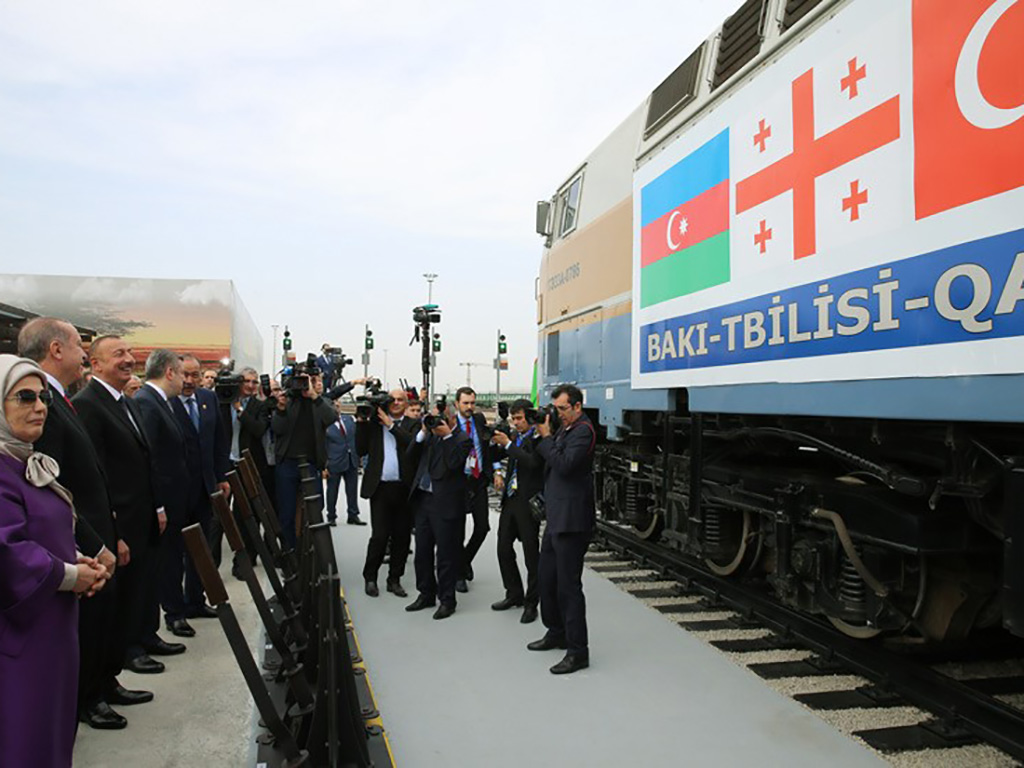 GEORGIA: THE BAKU-TBILISI-KARS RAILROAD: PEACE & PROSPERITY THROUGH THE REVIVAL OF THE SILK ROADS
GEORGIA: THE BAKU-TBILISI-KARS RAILROAD: PEACE & PROSPERITY THROUGH THE REVIVAL OF THE SILK ROADS
Dr. Reza YEGANESHAKIB 15.05.2019 -
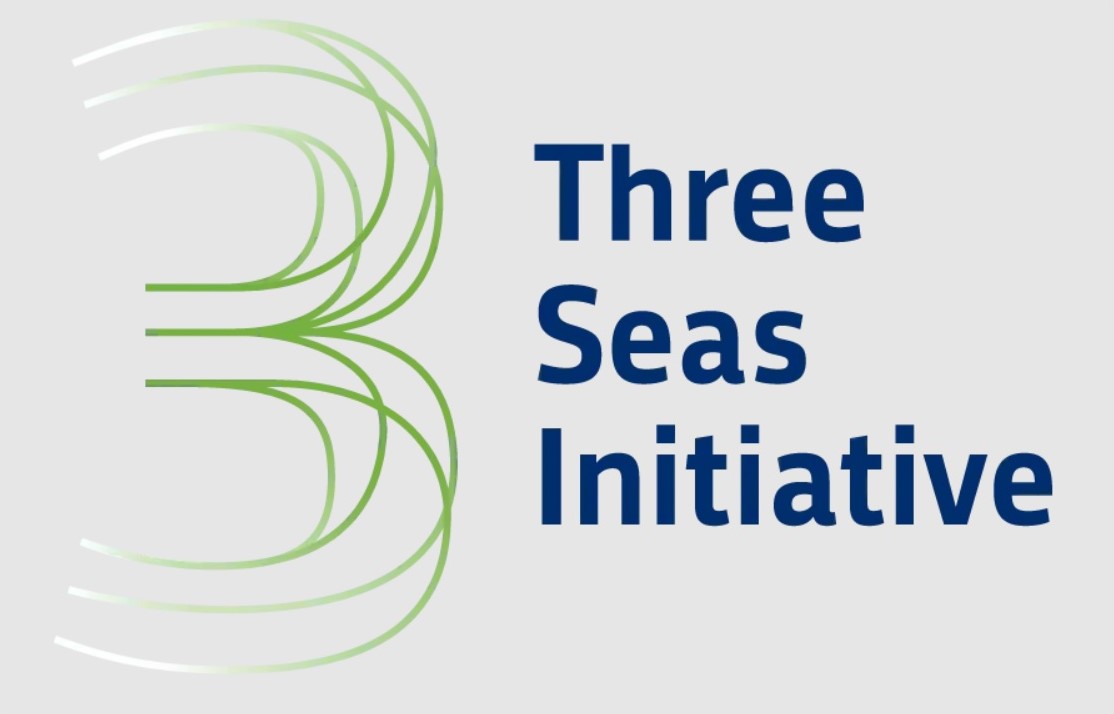 THE THREE SEAS INITIATIVE (3SI): AN ALTERNATIVE PROJECT TO PREVENT BRI?
THE THREE SEAS INITIATIVE (3SI): AN ALTERNATIVE PROJECT TO PREVENT BRI?
Deniz ÜNVER 31.05.2021 -
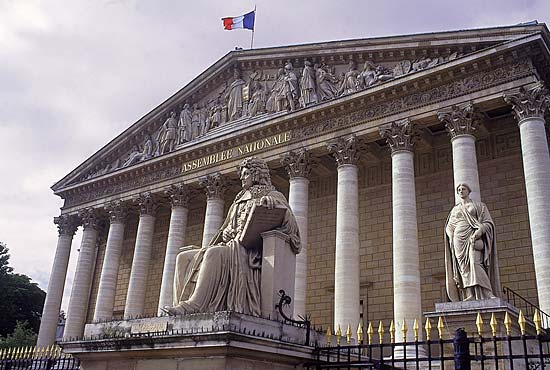 FRANSIZ SENATOSUNUN VE ULUSAL MECLİSİNİN YUKARI KARABAĞ’A İLİŞKİN ALDIKLARI KARARLAR - 03.12.2020
FRANSIZ SENATOSUNUN VE ULUSAL MECLİSİNİN YUKARI KARABAĞ’A İLİŞKİN ALDIKLARI KARARLAR - 03.12.2020
Ömer ZEYTİNOĞLU 07.12.2020 -
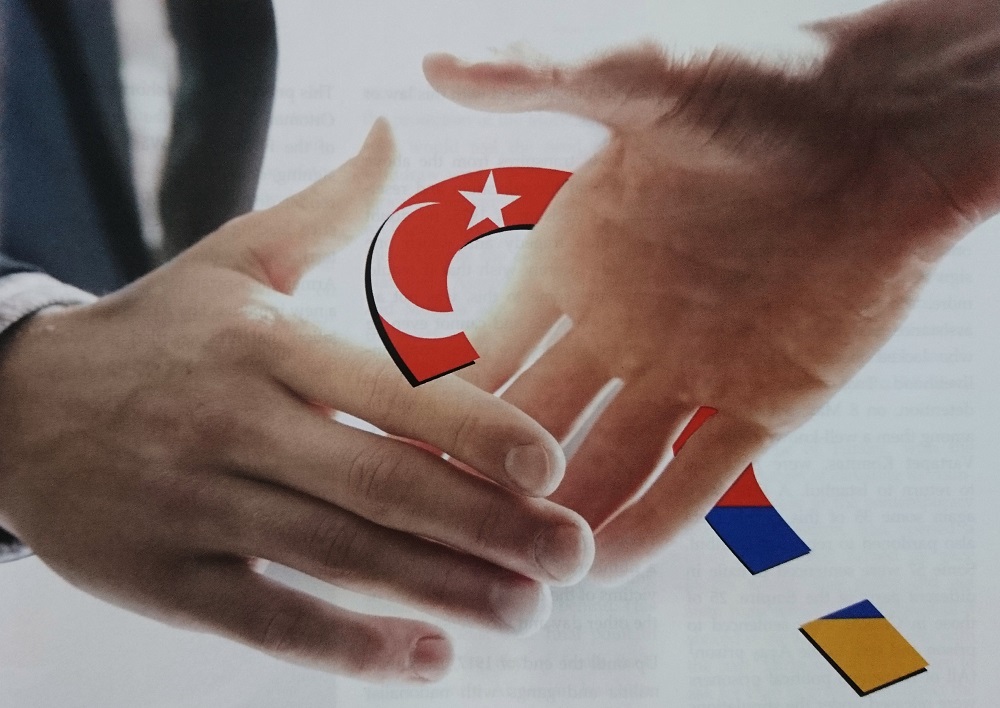 ERMENİSTAN TÜRKİYE İLE UZLAŞMAK İSTEMEKTE MİDİR? - DİPLOMATİK GÖZLEM - NİSAN 2019
ERMENİSTAN TÜRKİYE İLE UZLAŞMAK İSTEMEKTE MİDİR? - DİPLOMATİK GÖZLEM - NİSAN 2019
Alev KILIÇ 04.04.2019


